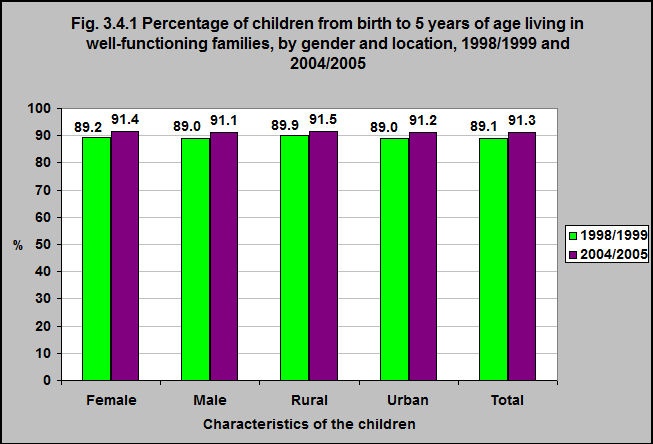Percentage of children from birth to 5 years of age living in well-functioning families, by gender and location, 1998/1999 and 2004/2005

Source: CICH graphic created using data adapted from the National Longitudinal Survey of Children and Youth, Cycles 3 (1998/99) and 6 (2004/05). http://publications.gc.ca/collections/collection_2009/rhdcc-hrsdc/HS1-7-2008E.pdf -accessed July 26, 2017.
The majority of Canadian children under 6 live in well-functioning* families – 91% in 2004/05 and 89% in 1998/99.
There is little difference in these rates regardless of the gender of the children or whether they live in urban or rural communities.
*The National Longitudinal Survey of Children and Youth (NLSCY) and Survey of Young Children (SYC) measure family functioning by looking at how well a family works together – for example, how they solve problems, communicate, treat each other emotionally and assume their various roles.
Implications
The quality of family relationships is particularly important for the health and development of young children. Research has shown that there is a significant connection between family “dysfunction” and mental health problems among children. It is encouraging to note that the majority of young children live in families that function well. However, not all families are coping equally – and supports are needed to assist those in need.
